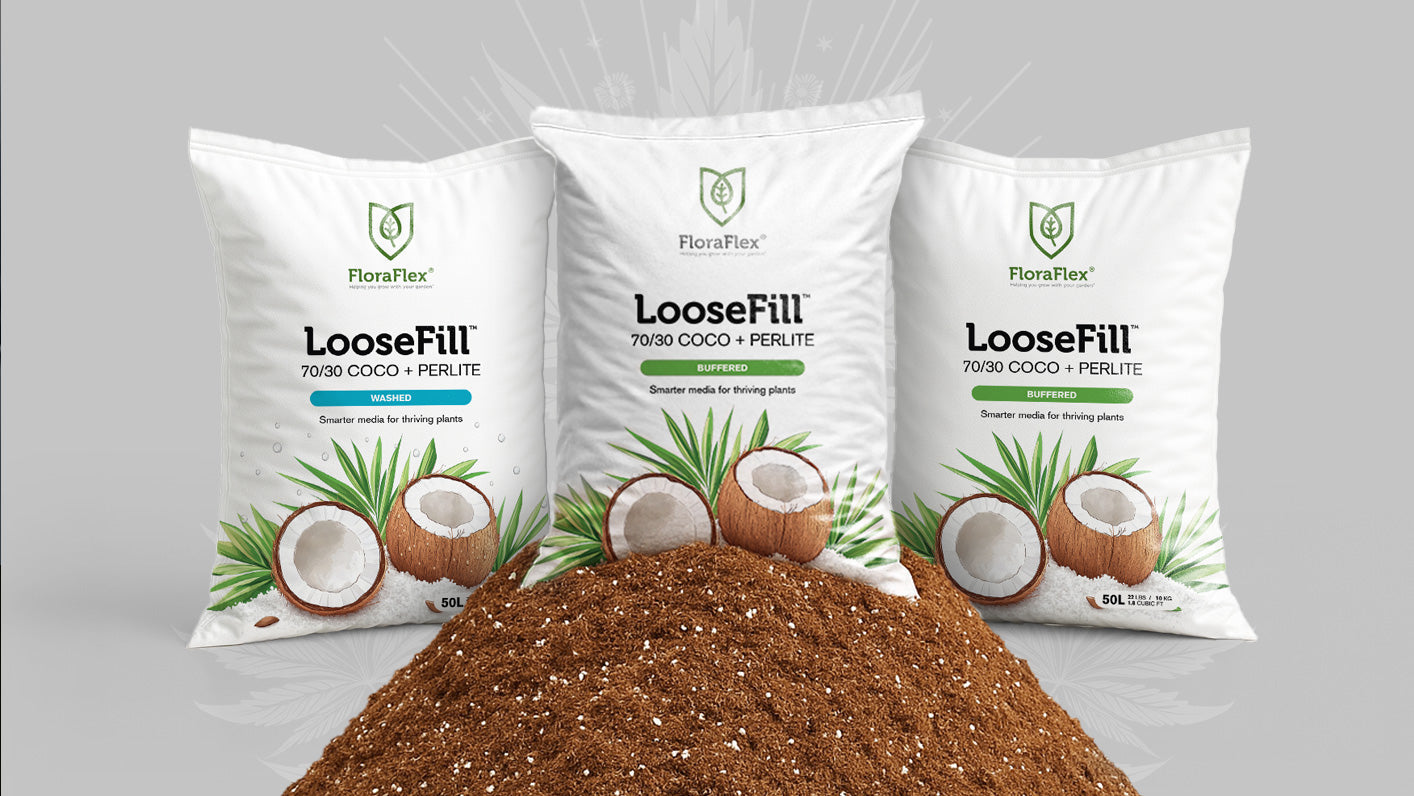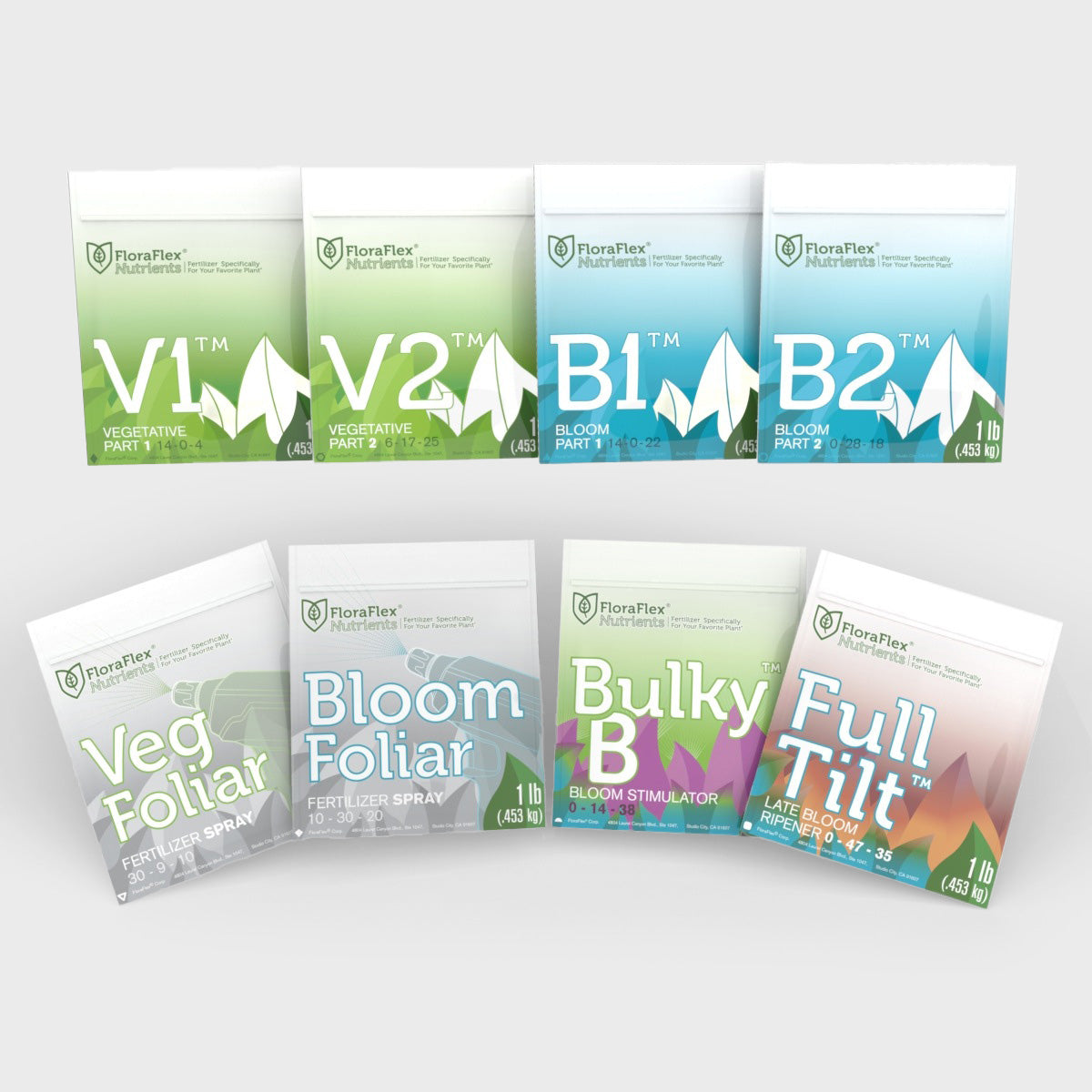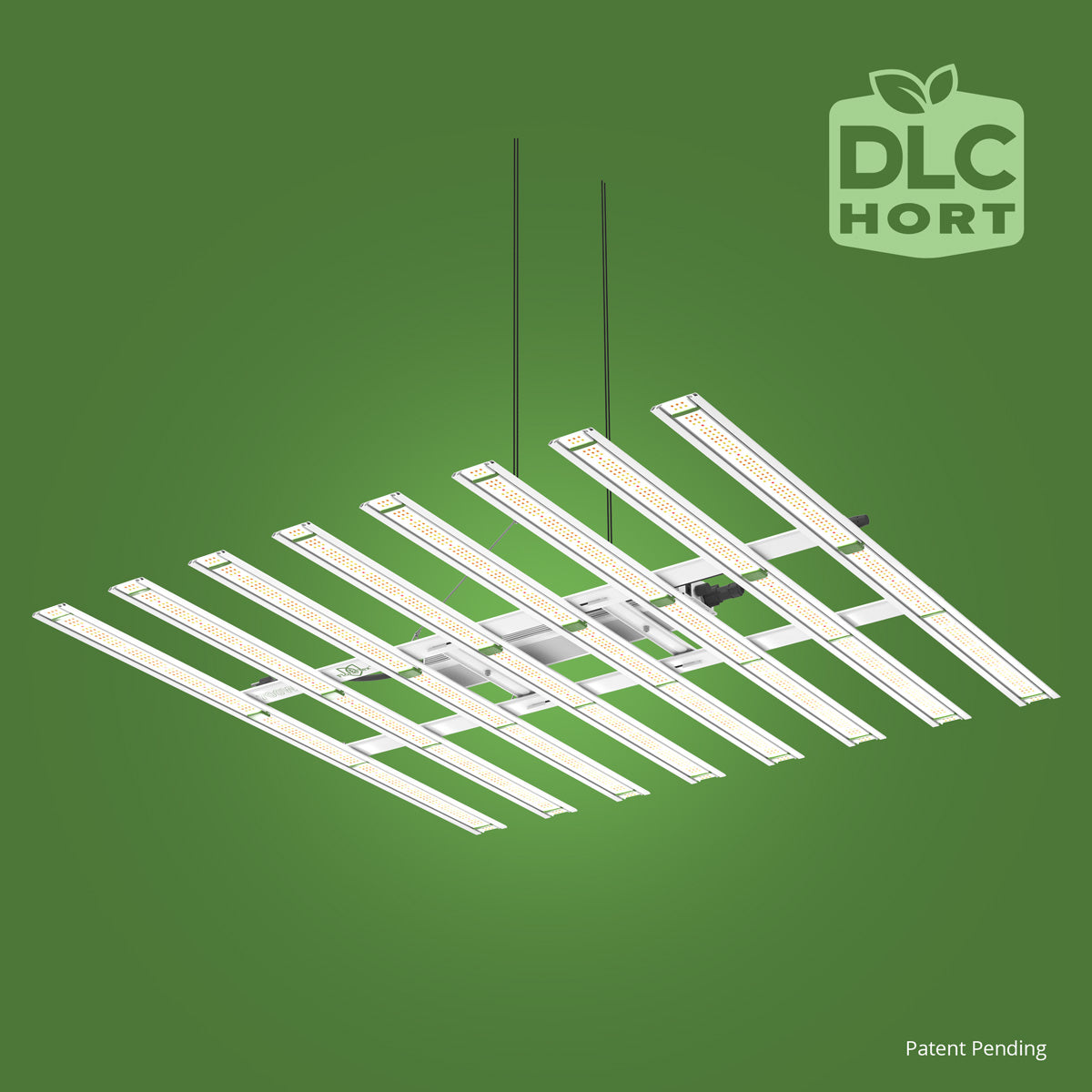Great runs start with a root zone you can predict. FloraFlex® LooseFill 70/30 blends high-quality coco (the same 60% water-holding-capacity base used in QuickFill) with perfectly sized premium perlite and ships fresh-packaged in the USA. It’s pre-buffered for a clean Day-Zero start and engineered for responsive dry-backs—so your irrigation behaves and your plants do, too.
What makes LooseFill different
Air + water in balance. The 70/30 structure creates a generous pore space for oxygen while holding enough moisture to keep nutrition moving. Our measured water-holding capacity (~52.5%) targets that sweet spot: fast resets without chronic dry-downs or waterlogging.
Buffered chemistry. Coco’s cation exchange sites love to bind Ca/Mg; unbuffered media often “steal” those cations from your feed and skew K/Na. LooseFill arrives pre-buffered so Ca/Mg availability is supported from the first irrigation—fewer Day-Zero surprises, fewer early corrections.
Fresh, consistent batches. Packaged in the USA means tighter control of moisture and texture bag-to-bag. When every tote feels the same, you can lock in a repeatable irrigation rhythm across trays and rooms.
Shop LooseFill 70/30 • Feeding Charts & Schedules

LooseFill vs. typical mixes (at a glance)
| Attribute | LooseFill 70/30 | Common Alternatives |
|---|---|---|
| Structure (air:water) | Airy 70/30 coco:perlite; fast O2 exchange | Often denser; slower resets and uneven dry-backs |
| Water-holding capacity | ~52.5% WHC for responsive pulses | Variable; can over-hold or shed too quickly |
| Day-Zero chemistry | Pre-buffered EC/pH to support Ca/Mg/K balance | May require extra conditioning; early deficiencies common |
| Batch consistency | USA-packaged for uniform moisture/texture | Inconsistent bag-to-bag feel |
| Irrigation behavior | Predictable dry-backs; easy pulse steering | Unpredictable; frequent timing tweaks |
How to use LooseFill (Day-Zero to Day-14)
Fill + pre-wet to field capacity. Don’t pack the pot tightly—preserve the airy structure. Pre-wet with a mild veg solution (pH ~5.8–6.0; EC ~1.2–1.6 mS/cm). Aim for a small, clean runoff (≈10–15%) so the profile is uniform top-to-bottom.
Establish a soft pulse cadence. Start with short, even pulses that maintain moisture in the middle band (not saturated, not swinging dry). In many rooms that means a few brief pulses after lights-on, then additional micro-pulses as canopy demand rises. Increase pulse length/count as roots colonize.
Let data steer you. Track input EC vs. runoff EC and daily dry-back. If runoff EC drifts up, reduce strength or increase total daily volume; if it drops, lengthen dry-back or reduce volume. The goal isn’t a perfect number—it’s a predictable curve that repeats day after day.
Pairing that simplifies setup: Micro Drip, Multi Flow Bubbler, Matrix Top-Feed.
Suggested starting targets (example)
Use these as a starting point and adjust to cultivar and environment:
Vegetative
Input pH: ~5.8–6.0
Input EC: ~1.2–1.8 mS/cm
Runoff target: ~10–20% daily
Dry-back: modest and consistent
Early Bloom
Input pH: ~5.8–6.1
Input EC: ~1.8–2.2 mS/cm
Runoff target: ~10–20% daily
Dry-back: slightly increased vs. veg
For detailed phase targets, use the official Feeding Charts & Schedules.
Common pitfalls (and quick fixes)
Over-packing the pot. Compressing media reduces pore space and slows oxygen. Fill loosely; tap the sides to settle instead of tamping hard.
Skipping the uniform pre-wet. Uneven top-to-bottom moisture = uneven rooting. Always bring the pot to field capacity on Day-Zero with a small, clean runoff.
Chasing EC too early. Buffered chemistry smooths the start; make small changes and validate with runoff over 24–48 hours before steering harder.
From first bag to repeatable wins
LooseFill 70/30 is built to make Day-Zero feel familiar: airy texture for oxygen, measured WHC for responsive pulses, and pre-buffered chemistry that supports Ca/Mg availability. That combination reduces guesswork, tightens your irrigation window, and helps every room track to plan.









